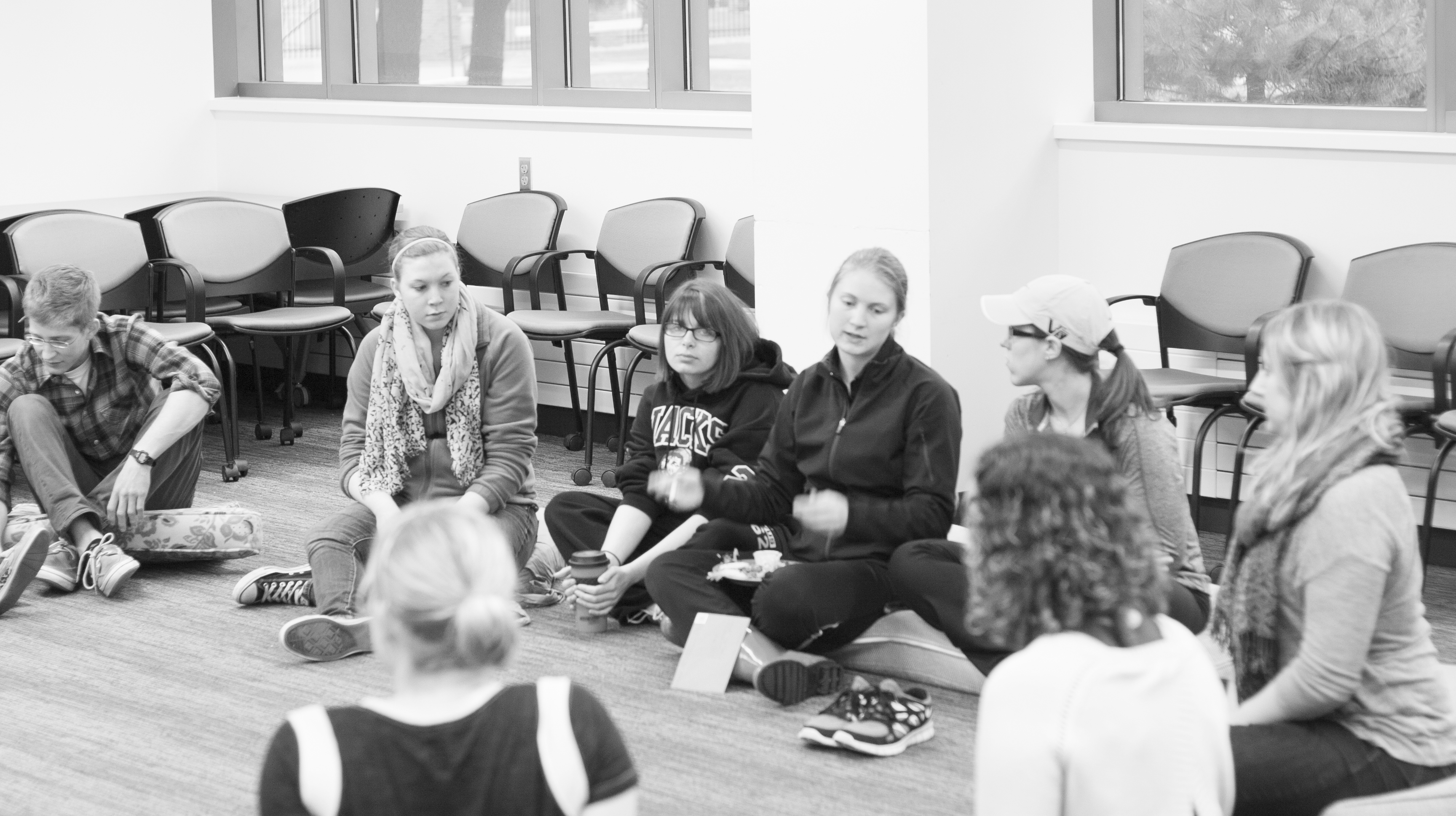The Womyn’s Awareness Center (WAC) held their annual Take Back the Night event Tuesday, April 29. Take Back the Night is an event aimed at anyone who has been impacted by sexual assault or sexual violence and supporters.
Sophomore WAC member Tori Sowa explained that the purpose of the event is to open the door for students who have been affected.
“Take back the night is an event that we hold that gives the chance for either victims of sexual assault or just people who want to support those who have been assaulted can come together and the victims can tell their stories and allies can give their presence, which alone shows their support. It is a healing event,” Sowa said.
Take Back the Night at Gustavus looks a bit different than events held on other campuses, such as Mankato, where students often rally to raise awareness and start conversations. Junior Co-President of WAC Liz Kramer explained that the sharing aspect of Gustavus’ Take Back the Night is crucial.
“I think that’s part of why we plan this event…it is something that as an organization we do every year, but that isn’t the main reason. I think it’s because this is one of the only times to have this discussion to know that it is a respected, confidential place and it is a time of healing and you don’t get something like that with a large group very often. This isn’t an environment you could recreate if you were hanging out with twenty of your closest friends,” Kramer said.
Members from SART, the Counseling Center, and the Chaplains office, along with a representative from Mankato Committee Against Domestic Abuse (CADA) attended the event to show their support.
“It is a really visible way. You’re not just saying ‘SART supports you,’ you’re saying ‘SART will be here for two hours, so will three other groups, so will twenty other people, these are a presence on campus that supports you,” Kramer said.
Senior Erik Anderson, one of the few male attendees of the event, shared why he believed his presence was so important.
“I wanted to be here because I think being a set of listening ears is a really powerful way of showing support, especially when people are sharing such personal stories about their experiences, that’s something that takes a lot of courage and bravery to do and even though I have never experienced sexual assault myself, I want to be present and supportive to all individuals who have been affected,” Anderson said.
Kramer shared that, although most victims of sexual assault are women, the event is more than open to men as well.
“I think that sometimes it can be males, especially, that are apprehensive, for anyone of any gender, this isn’t a place of blame or a place of crimination or anything like that,” Kramer said.
Anderson also talked about why he believes other men should be attending events like this.
“I think it’s important for men to be involved in conversations on sexual assault and sexual violence because these are issues that impact everyone. Sure, sexual violence and assault definitely do impact mainly women, but men are still very much effected by it, because as a man, there are many women who I care about in my life who have been effected by sexual assault and that is very painful for me to see. Sexual violence is mainly perpetrated by men, so it is important that we’re all collectively a part of this conversation,” Anderson said.
Kramer and Sowa both count this year’s event as an overall success.
“I think that any year that someone has had a chance to share a story has been successful. Even if three or four people showed up, I would still count that as successful, because somebody had the opportunity and it matters to them,” Kramer said.
“The biggest thing for me is that even though there wasn’t a huge, huge turnout, just the knowledge that you’re not alone in this, not only because it’s important at Gustavus because there are people here that are victims of sexual assault, but there are people that are impacted by sexual assault everywhere,” Sowa said.
Sowa encourages everyone to foster conversation about these issues, even though they may be uncomfortable.
“Be comfortable in your discomfort. It is going to be a little bit of a trial, obviously the issues are really hard to talk about and hard to deal with, but that’s why it is important to talk about and this is the kind of environment where it’s safe to discuss it and to be uncomfortable. You don’t have to say a word if you come, you can just sit there and listen. All we ask is that you are respectful to other people’s stories and create a safe place for people to talk,”” Sowa said.
